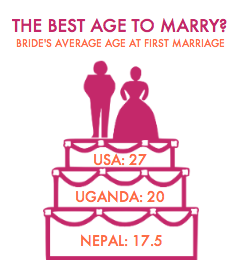
April 15, 2013 | Education, Law and Justice, Economic Opportunity
Poverty Doesn’t Have to Be Permanent
Innovative solutions that are saving single moms.

Part 3 of our 3-part series on American women and poverty
By Amanda L. Freeman
Every day, countless groups across the country help women and their families with meals, housing, childcare, tutoring, counseling and more. For instance, single moms like Norma and Lauretta, whose stories appeared in part two of this series, get mentoring and job-search assistance from the Crittenton Women’s Union in Boston. "Just having someone to check in on you. It really helps you to move forward," said Norma.
But much of the battle against female poverty takes place behind the scenes. Unsung advocates campaign tirelessly to end mistreatment of low-wage workers and to guarantee vital benefits like sick days and a livable minimum wage.
Their goal is to create public policies that ensure "a decent wage and that all workers can earn paid sick days, and a family and medical leave insurance fund so all workers can draw income while caring for a new child or a family illness," says Ellen Bravo, executive director of Family Values @ Work, a network of 20 state coalitions lobbying for these benefits.
Changing laws, though, is hard compared to, say, serving meals in a soup kitchen. "Getting support to attack systemic barriers is more difficult because funders like to see tangible results in short periods of time," says Noreen Farrell, executive director of Equal Rights Advocates (ERA), a nonprofit working for the rights of women and marginalized workers.
Who’s helping: Learn about groups that are getting women out of poverty
Click here for part 1 of this series
Click here for part 2 of this series
ERA is one of the many service and advocacy organizations supported by the Ford Foundation, which has made it a priority to solve the feminization of American poverty. "We can't just call attention to the problems of poverty," says LaShawn R. Jefferson, Ford Foundation program officer on women's human rights. "We have to engage the women who are closest to the problems to help craft the solutions."
ERA offers advice and referrals through a hotline, but the majority of their work is legal advocacy. For instance, ERA supports the Pregnant Workers Fairness Act to protect the rights of pregnant workers nationwide.
That means helping women like Lauren. When Lauren (not her real name) announced her pregnancy at work, everything changed. "I was working as an administrative coordinator, and they gave me all these new duties," she recalls. "I had to collect and throw out the garbage, clean the bathrooms, and I said, wait a minute, I wasn't doing any of that before. But these were the things I had to do if I wanted to keep my job. When I wouldn't clean the bathroom, they fired me."
Often pregnant women feel powerless to report problems at work because they may lose their job, says Fatima Goss Gaves, vice president for education and development for The National Women’s Law Center, which files briefs, brings lawsuits to enforce existing laws, and wages public education campaigns on behalf of low-income women. "It's a very real fear," she says, "and it's so important for them to have a healthy pregnancy and a job that pays."
She’s not just a worker, she’s a mother
There are two proven ways for low-income women to climb out of poverty: Join a union or get some college education, says Anne Ladky, executive director of Women Employed. Women Employed advocates for better workplace conditions and increased access to education. Their pilot program, "Complete the Degree," assists women who have some college credits and want to go back.
Union jobs are much more likely to offer generous benefits, but most low-wage workers don't have access to union membership. But groups like 9to5, a national association for working women, are trying to fill that gap by training women to organize their own campaigns and advocate for their rights on the job.
For low-wage earners who are lucky enough to be unionized, the prospects are certainly brighter. Health care workers, for instance, have the Healthcare Career Advancement Program, which allows them to work and go to school for free, sometimes moving up the ladder in the same hospital. The program also helps women locate childcare during classes, and provides tutoring and career counseling.
One thing that's now glaringly obvious is that getting single moms out of poverty won't happen unless groups working on their behalf realize that they are dealing with a family. It's not uncommon to find a woman visiting a Head Start program for her child on one side of town while a housing office is trying to move that same family across town. Poor families deal with many different agencies that don't talk to each other. And unfortunately many programs, designed to empower mothers ignore the demands of their children.
The Ascend Program at the Aspen Institute is trying to fix that. Ascend focuses on the needs of parents and their kids together, says Anne Mosle, vice-president of the Aspen Institute and executive director of the Ascend Program. For instance, Dr. Eduardo Padrón, president of Miami Dade College and an Aspen fellow, is working to better support low-income student parents by coordinating with daycare and Head Start programs.
"Social programs need to address the power of the connection between mothers and children and moving ahead," said Lisa Dodson, author of Don’t Call Us Out of Name: The Untold Lives of Women and Girls in Poor America. "Most moms will tell you that their children are their greatest motivation for going back to school or trying to get a better job."
Amanda L. Freeman is a writer, researcher and doctoral candidate specializing in single-mother-headed families.